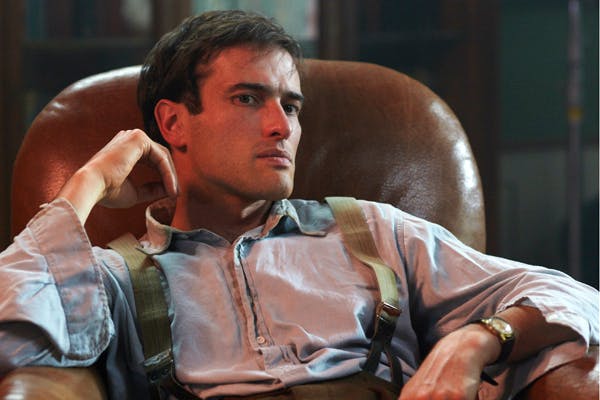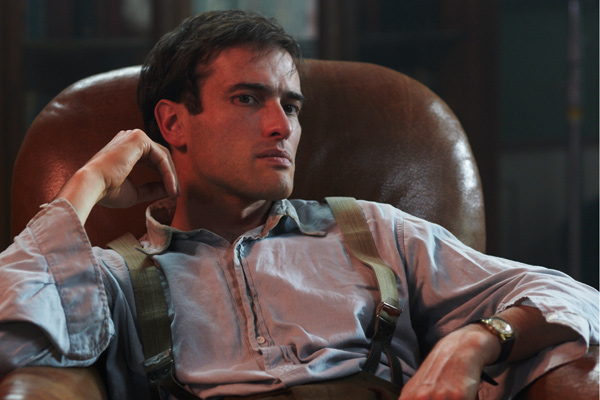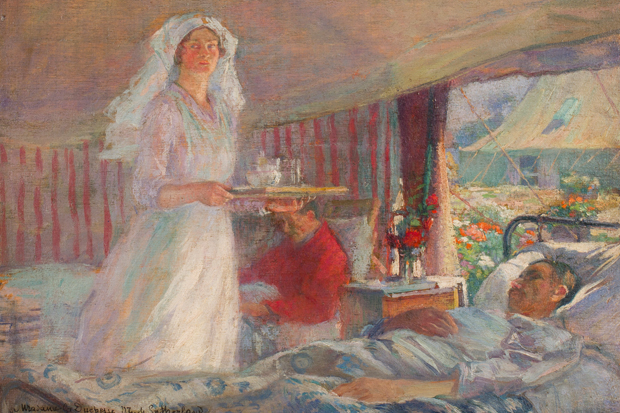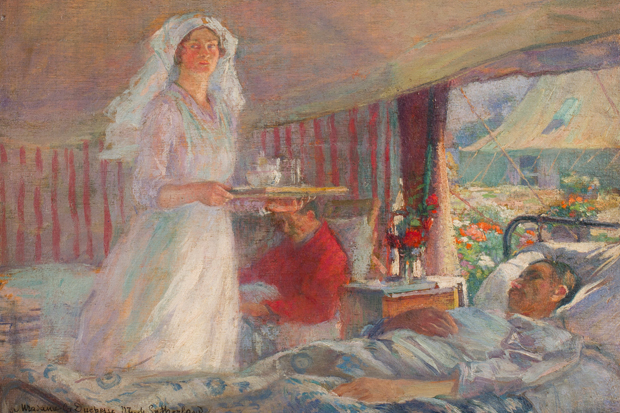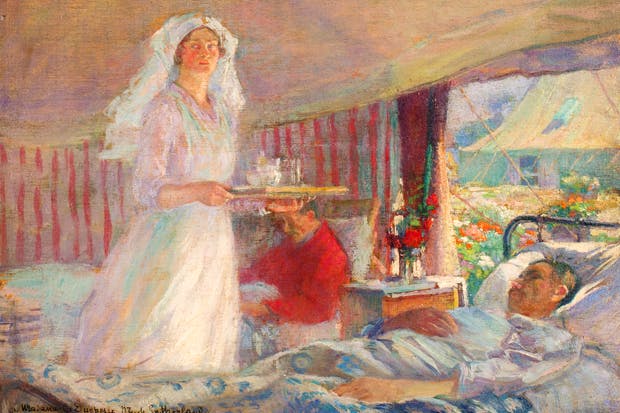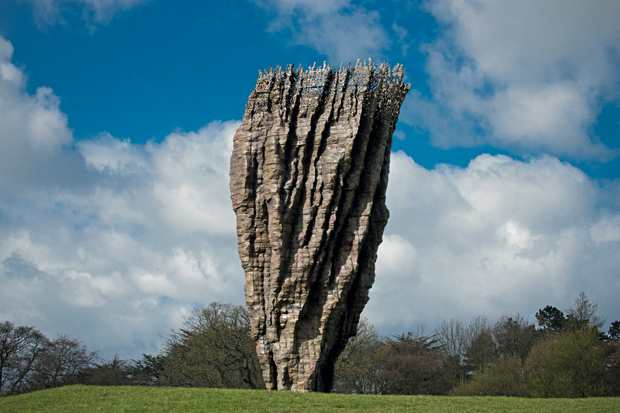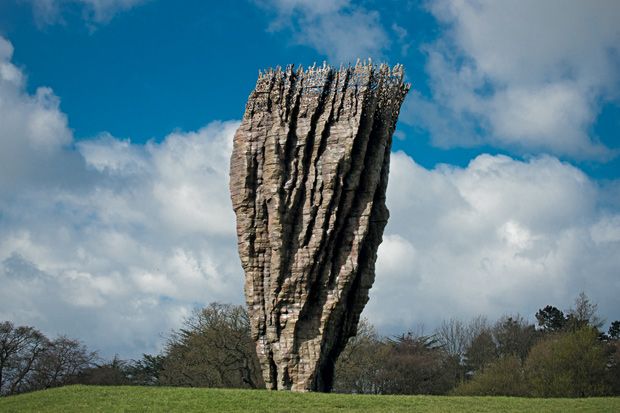Alan Turing, the man who developed the Enigma code that saved the Allied war effort, was not merely disregarded by his country. A homosexual, he was convicted of ‘gross indecency’ in 1952 and chemically castrated via forced oestrogen injections. Under unimaginable duress, he committed suicide. That it took until 2009 for the British government to apologise only compounds the scandal.
Turing’s story is told in Codebreaker, a docudrama that combines reenactments of conversations between Turing, played by Ed Stoppard (above), and his psychiatrist (the German Jewish refugee Franz Greenbaum), and interviews with experts on his life and work. One after another, they attest to Turing’s brilliance as the man who created modern computing. Turing was to computers what Galileo and Newton were to physics: someone who ‘had thoughts that nobody else was having’.
If Turing was lonely in his genius, he was less isolated in his sexual orientation. Yet the knowledge that there were others like him didn’t lessen the fear that gripped homosexuals pre-Wolfenden. Unlike many, he thought better of marrying. Joan Clark, the friend he almost wed, attributes Turing’s refusal to do so to his ‘higher self-awareness’, an acknowledgment that his perspicacity extended beyond the quantitative.
One of the film’s interviewees explains that Turing could ‘see further’. How tragic that his precocious vision could not conceive of a Britain where gays would be celebrated rather than hounded.

